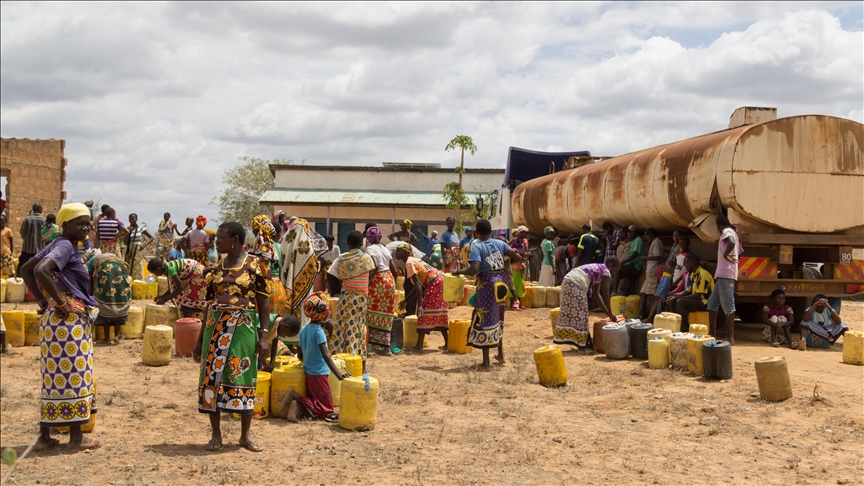Water scarcity threatens food security in Middle East, says UN official
Middle East does not lack drinking water, but enough water to produce food, says UN researcher
 FILE PHOTO
FILE PHOTO
SHARM EL SHEIKH, Egypt
The UN Food and Agriculture Organization (FAO) has voiced concern over the worsening water scarcity crisis in the Middle East in particular, which it said will threaten food security in the region.
FAO is participating in the COP27 Conference in Sharm El-Sheikh, eastern Egypt, which kicked off on Nov. 6 and will run through Nov. 18.
Food is one of the sectors most affected by the consequences of climate change, said Jean-Marc Faures, agricultural research officer and water resources management specialist at FAO.
In an interview with Anadolu Agency on the sidelines of COP 27, Faures said "water is the number one issue in the Middle East in particular and in the world.”
“The response to all agricultural problems is water!” he added.
"The Middle East area suffers from a lack of water by nature, if we add to this the climatic changes, the already scarce amount of water will be greatly affected,” he said.
He further said that “the Middle East does not lack drinking water, but enough water to produce food.”
Explaining the impact of climate change on water and agriculture, he said: "Farmers depend on the climate for their activities, now that the climate has changed, farmers are affected."
"Farmers wonder if they can still grow the same crop, or if it will be destroyed by rising temperatures,” he said.
"The change in precipitation, its patterns and quantities, and longer droughts affect crop irrigation, there are estimates indicating that climate change will change the percentage of rain which is linked to irrigation."
Speaking about the measures taken by FAO to address the water crisis and its implications for agricultural production, Faures said: "The most prominent question is clean energy.”
Faures spoke about a number of international institutions that were established to confront the water scarcity crisis through cooperative action.
He noted that many institutions deal with water issues in the region, among them is The International Center for Agricultural Research in the Dry Areas (ICARDA), the International Center for Biosaline Agriculture and the International Water Management Institute (IWMI).
Faures stated that The FAO launched the Water Scarcity Initiative with the objective of joint cooperation so “that the same projects are done in a coordinated and harmonious manner."
He explained that “through a huge event such as COP27, meetings with institutions working in the field of water and agriculture are held.”
“Through these meetings, we exchange visions, share our research, and shed light on our field work and projects on the ground,” he added.
He further said "during all stages of our work, water always occupies a high place on our agenda.”
*Ikram Imane Kouachi contributed to this report
Anadolu Agency website contains only a portion of the news stories offered to subscribers in the AA News Broadcasting System (HAS), and in summarized form. Please contact us for subscription options.







